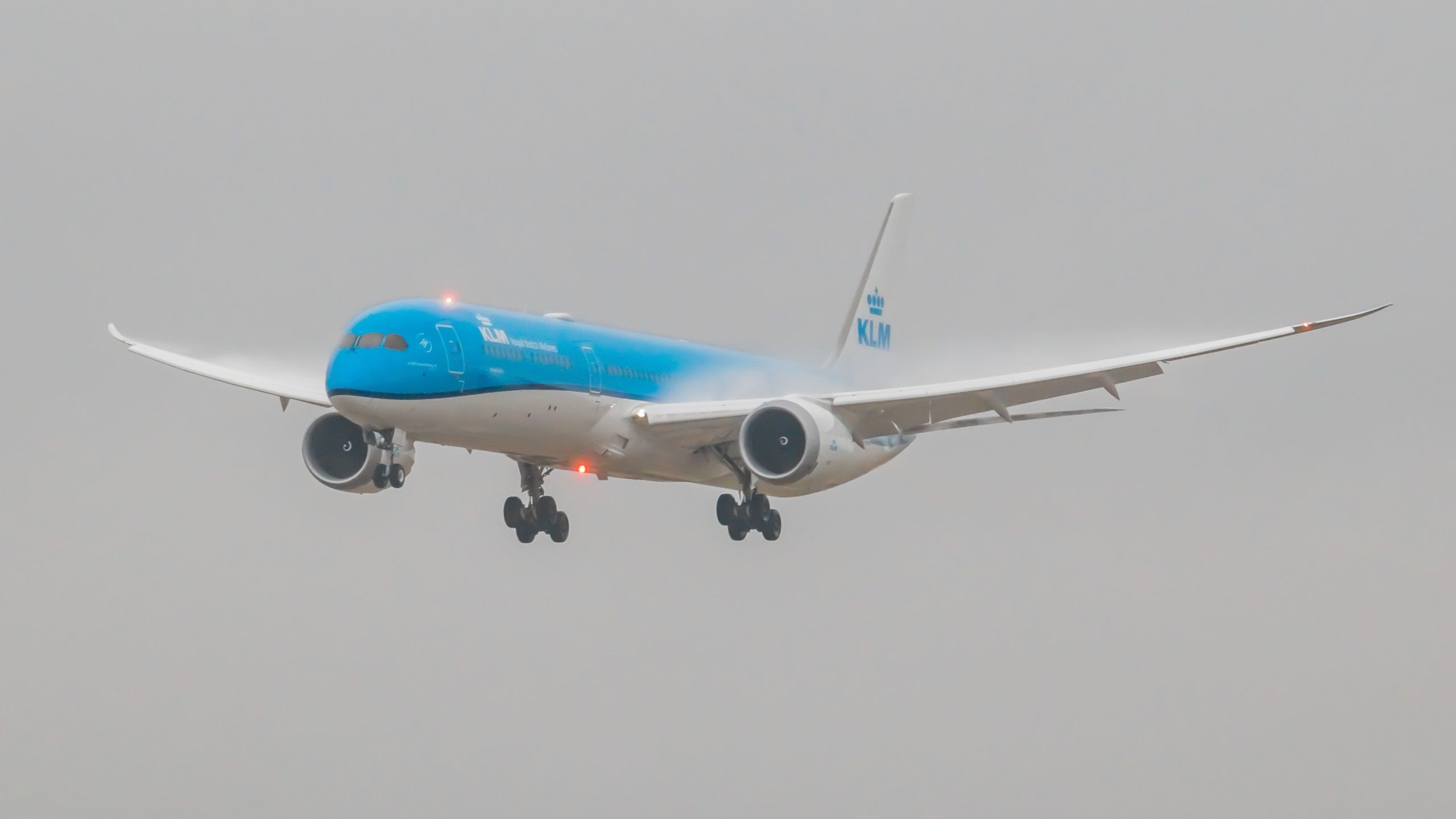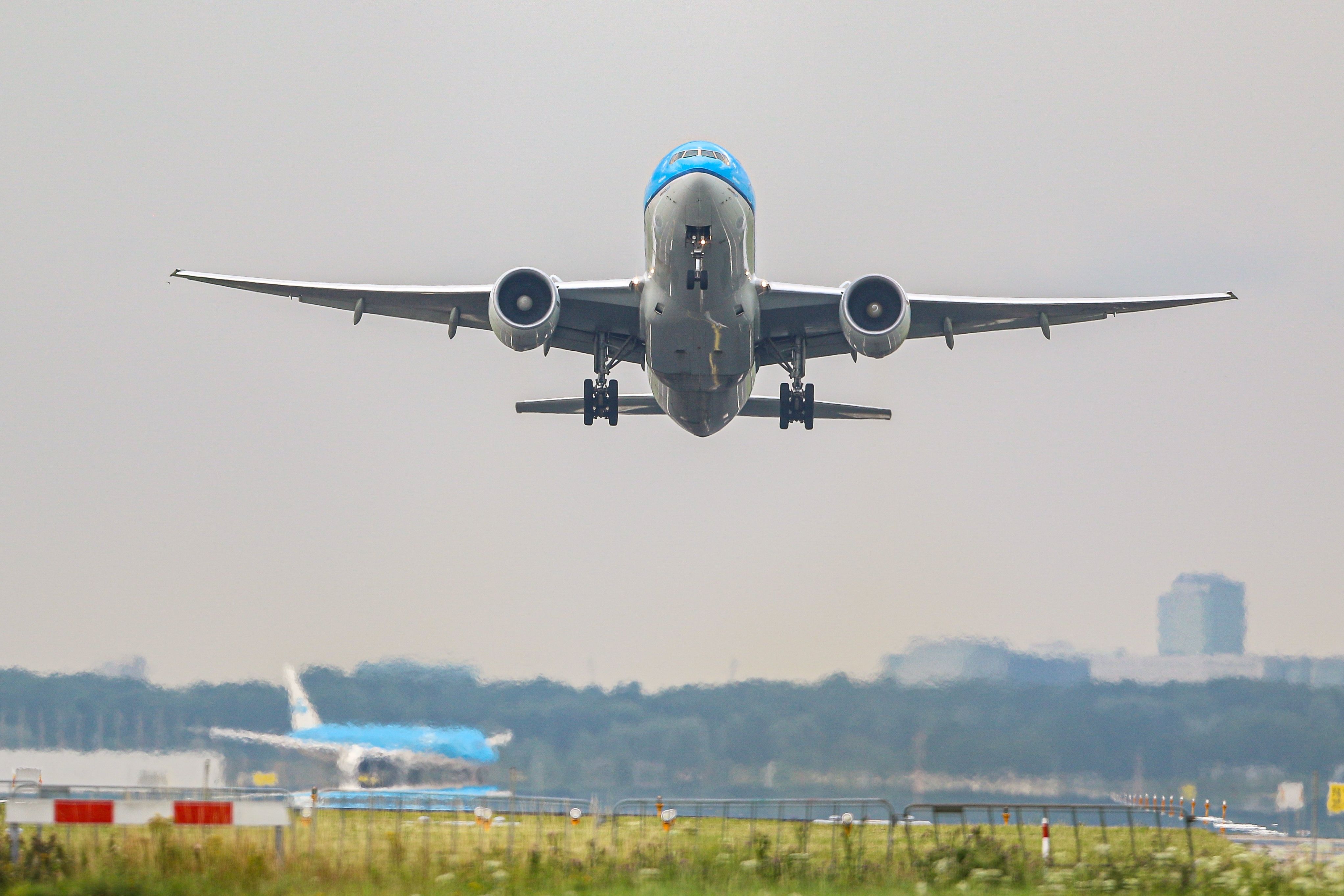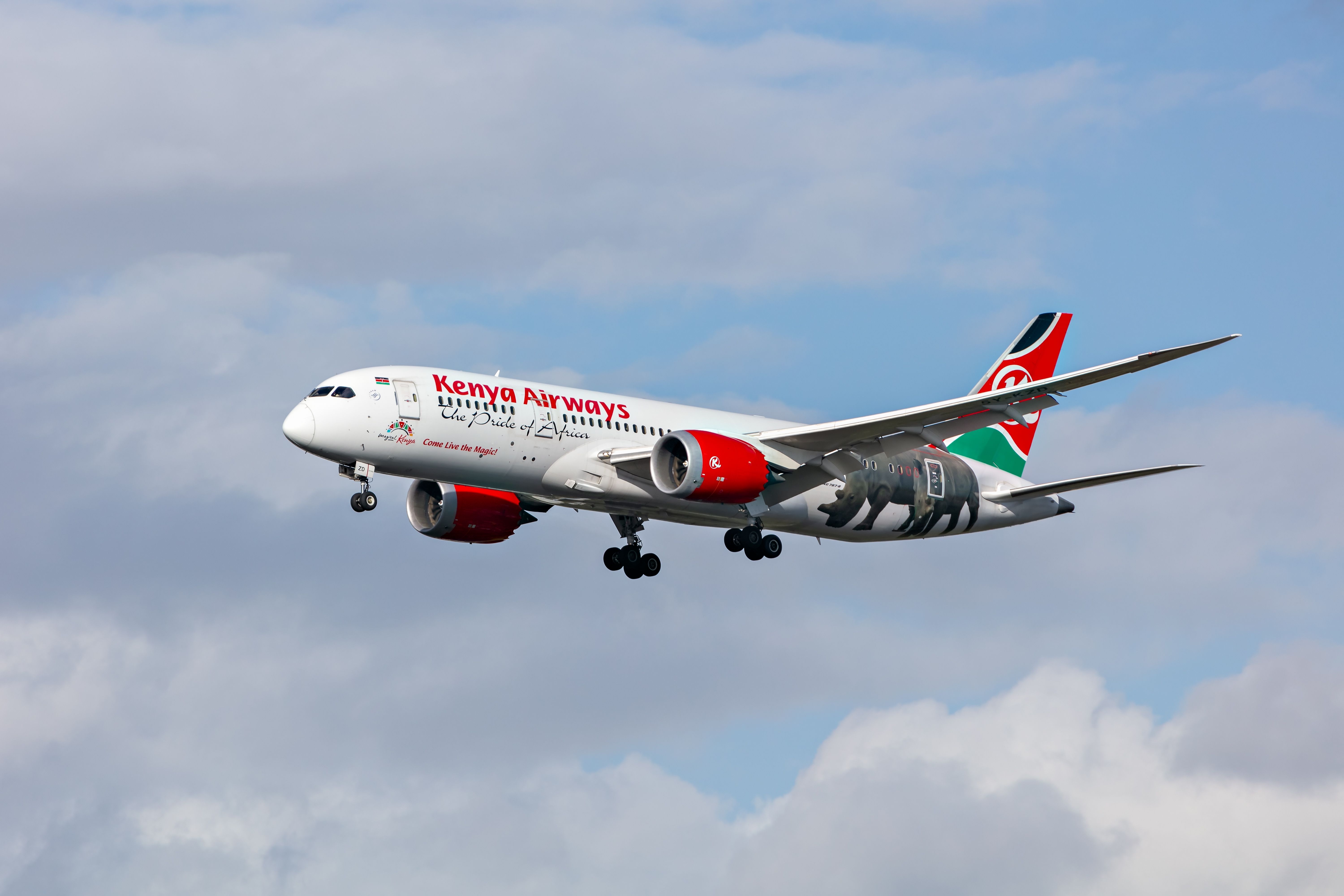Summary
- KLM Royal Dutch Airlines won the Best Adoption award for implementing sustainable solutions that other airlines can use, while also improving their own sustainability efforts.
- The Sustainable Flight Challenge is an annual competition between airlines to improve sustainability, with this year’s challenge resulting in a 19% reduction in CO2 emissions compared to the previous month.
- Other award winners include Kenya Airways for Best Innovation, Air France for Best Collaboration, TAROM for Lowest CO2 Emissions, China Eastern for Greatest CO2 Reduction, KLH Cityhopper for Best In-Flight Waste Management, and Air Europa for Lowest CO2 Emissions for Ground Operations.
On October 4, SkyTeam announced the various winners of the Sustainable Flight Challenge for 2023. The challenge, established to spark new innovation for airlines across the world, announced the winners of 25 subcategories at the Delta Flight Museum in Atlanta, Georgia. SkyTeam also announced the winners of six other award winners.
Best Adoption award
The winner of the Best Adoption award was KLM Royal Dutch Airlines. The airline, the Netherlands’ flag carrier, was the recipient of the award because it impressed the Sustainable Flight Challenge judges by implementing the most sustainable solutions that were picked up by other airlines. According to the Sustainable Flight Challenge, KLM consistently uploaded its various solutions to the SkyTeam platform. This allowed other airlines to implement these solutions in their own sustainability efforts. The recipient could also be chosen for having a submission with the most potential to scale at a high level.
Photo: JHcreative | Shutterstock
KLM revealed that in addition to continuing its ideas from the previous year’s challenges, the airline would also implement two other major innovations. The airline worked with its fuel supplier to improve its sustainable aviation fuel (SAF). This helped cut down on carbon dioxide emissions throughout its fleet. The airline also began implementing different meals on its longer flights. The chosen meals were specific to reducing the environmental and food chain impact.
KLM also adds 1% sustainable aviation fuel to the fuel system at Schiphol Amsterdam Airport (AMS). The fuel system is used for all departing flights. The airline also has a history of investing in fleet renewal, recycling, and noise reduction.
Sustainable Flight Challenge
The challenge is an annual competition between airlines across the world to improve sustainability efforts. The competition, initiated by SkyTeam, began last year. This year’s challenge had 22 airlines competing over 72 flights. The competing airlines also submitted over 350 new innovative ideas to help sustainable efforts across the industry. The Chief Executive Officer of SkyTeam, Patrick Roux, spoke about this year’s challenge, saying,
“Alliances were built on cooperation and SkyTeam’s Sustainable Flight Challenge demonstrates how working together beyond the traditional realms of network and customer service can help reduce aviation’s impact. The participating airlines have sparked hundreds of new solutions and ways of working that have the potential to bring about positive action and drive wider industry change while we await game-changing technology and greater availability of sustainable aviation fuels.”
This year’s Sustainable Flight Challenge has resulted in an estimated reduction of CO2 by 19% compared to flights operating in the previous month. The challenge awards a total of seven awards and 25 subcategories, which are decided by a diverse panel of international aviation and sustainability experts.
Other award winners
In addition to the Best Adoption, the Sustainable Flight Challenge awarded six other awards. Kenya Airways was awarded Best Innovation for its work in establishing the SAF supply chain throughout Africa. The Best Collaboration award was given to Air France for its work on the Holistic & Green Airports (OLGA) project. TAROM recorded the Lowest CO2 Emissions, due to a high payload factor for its Bucharest-Madrid route.
Photo: Abdul N Quraishi – Abs | Shutterstock
Additionally, China Eastern achieved the Greatest CO2 Reduction by increasing its payload fraction on all of its short-haul and medium-haul flights. The Best In-Flight Waste Management award was given to KLH Cityhopper. The airline successfully reduced the waste on its challenge-operated flights to only 12 kilograms (26.5 pounds) for the 192 passengers onboard. The last award, which was the Lowest CO2 Emissions for Ground Operations, was given to Air Europa. The airline achieved this by heavily utilizing electric ground equipment.



